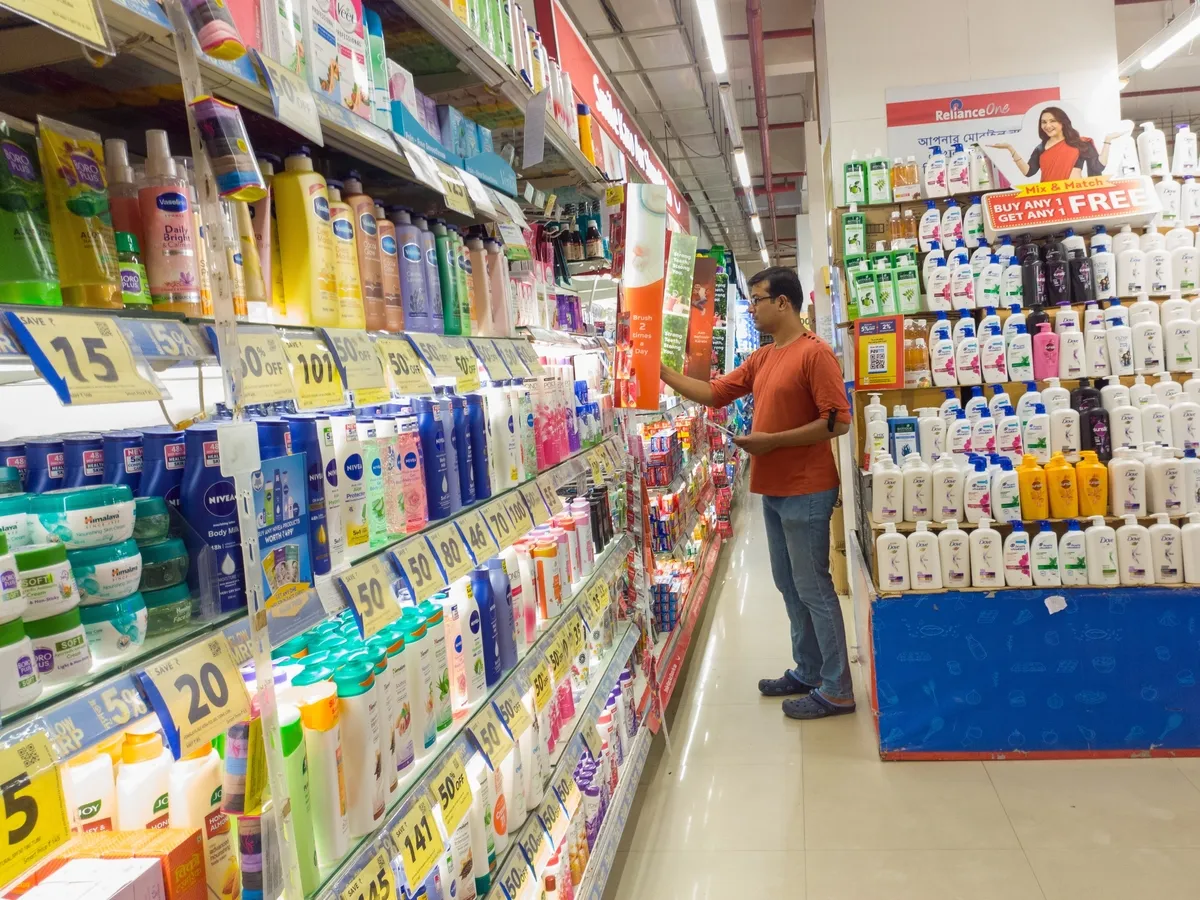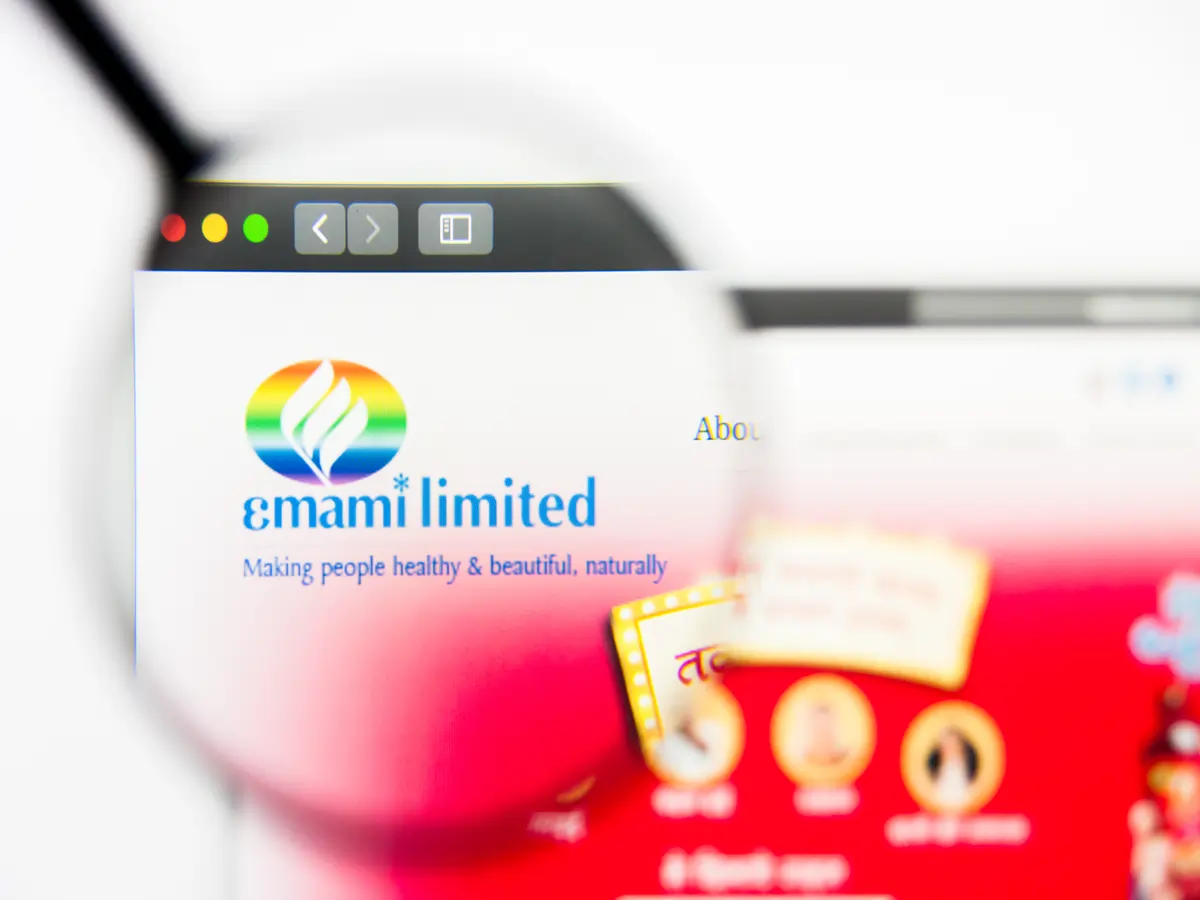Market News
Nestle India, HUL, Britannia: GST 2.0 announcement fuels rally in FMCG stocks; check what Q1 FY26 earnings indicate
.png)
6 min read | Updated on August 18, 2025, 10:53 IST
SUMMARY
FMCG Q1 FY26: Large FMCG companies such as Britannia, Dabur, Marico, HUL, etc., have acknowledged competition from small regional brands in their pockets of influence in some of their product categories.

Recently, Britannia Industries has acknowledged competition from small players. | Image: Shutterstock
From the ramparts of the historic Red Fort, PM Modi announced that the GST rates will be lowered by Diwali, bringing down prices of everyday use items, as his government looks to reform the eight-year-old tax regime that has been plagued by litigation and evasions.
The BSE Fast Moving Consumer Goods index was trading at 20,471.82, up 330.32 points, or 1.64%. On the NSE, the NIFTY FMCG index was trading at 55,640.35, up 984.05 points, or 1.80%.
Among individual names, Nestle (India) was the biggest gainer on the BSE FMCG index. The stock was trading over 6.5% higher at ₹1,161.15 on the BSE. The top contributors to the index were HUL, Nestlé India, Britannia, and Tata Consumer Products (TCPL).
For the June 2025 quarter (Q1 FY26), FMCG companies reported muted numbers overall. The quarter, which the experts mostly described as muted and resilient, exuded optimism that the companies will see better performance in the coming quarters.
As regards the fast-moving consumer goods (FMCG) market, industry notes that the segment is witnessing a significant 'consumer shift' towards newer and regional brands, as consumers are increasingly seeking value and opting for localised preferences.
Honasa Consumer Chairman and CEO & Co-founder Varun Alagh told PTI that regional brands are giving tough competition to the large established players with their aggressive pricing and better margins for the distributors, impacting the growth of large brands in the industry.
"Overall, there is a consumer shift happening towards newer brands, regional brands... as large FMCG (companies) are not growing as strongly," Alagh added.
The new FMCG brands are younger with new propositions and are working on strong vernacular strategies, he said.
After the latest June quarter results, large FMCG companies such as Britannia, Dabur, Marico, HUL, etc., have acknowledged competition from small regional brands in their pockets of influence in some of their product categories.
When asked about the overall FMCG industry growth in the June quarter, Alagh said it has largely been "subdued" with no substantial volume gains.
"But at least still in our case, in fact, volume growth is ahead of value growth. So volume growth is actually double-digit in nature. So all of our growth is driven by more consumers buying our products, and hence volume growth, which is a healthier sign," said Alagh.
Moreover, Alagh also expects Honasa Consumer, which owns FMCG brands such as Mamaearth and The Derma Co., to have a double-digit volume growth in the remaining three quarters of FY'26.
"... We believe that the next three quarters will be better than what the first quarter has been, and we should be in the double-digit zone for the next three quarters," he said.
Recently, Britannia Industries has acknowledged competition from small players, and its Vice Chairman & Managing Director Varun Berry, in the latest earnings call, said that with a 'war chest' ready, it is ready to "fight many battles in smaller territories" against the regional players.
The leading food company, which owns household brands such as MarieGold, Tiger, Nutrichoice, and Good Day, is doing a "specific analysis on each one of these competitors," said Berry.
The regional players are giving tough competition to the large established brands with their aggressive pricing and better margins for the distributors.
HUL also said it faces competition in the category of detergent bars, which is "well spread out with multiple players: global players, local players, and regional players."
"So, it's a pretty spread-out competition on the detergent bar," said HUL CFO Ritesh Tiwari in the June quarter earnings calls.
Similarly, a homegrown FMCG major also faced competition in segments such as its ‘Lal Tail’ business, which was impacted in UP and Bihar by a small player, which took away its market share.
"So, suddenly, a new player has come in, and we will correct that situation, which is a very localised problem, which has been identified, and we will correct it. So, there has been market share loss in our Lal Tail business, which we will correct going forward," said Dabur CEO Mohit Malhotra in the earnings call.
Marico also faced challenges with its coconut oil brand, Parachute, and unreasonable competition in value-added hair oils.
"As consumer pricing gradually normalises, we expect Parachute to chart meaningful recovery in volume growth given our competitive advantage under such conditions where the smaller players are out of the market," said its MD & CEO, Saugata Gupta.
Nestle India's former chairman and MD Suresh Narayanan had said last month in an interview with PTI that startups and regional brands are not only good for providing variety to consumers but also give established players the push to improve their product offerings.
How Honasa Cosumer, Nykaa fared in Q1 FY26
Honasa Consumer reported a 2.64% increase in consolidated net profit at ₹41.32 crore for June quarter FY26, helped by volume gains.
It had logged a profit after tax of ₹40.25 crore in the April-June period a year ago, according to a regulatory filing from Honasa Consumer.
Revenue from operations was higher at ₹595.25 crore in the quarter as against ₹554.05 crore logged in the year-ago period.
"Q1 FY26 marked a strong start to the year, with Honasa delivering its highest-ever quarterly revenue of Rs 595 crore and a record quarterly profit of Rs 41 crore, supported by a sequential improvement in EBITDA margin to 7.7 per cent," said Chairman and CEO & Co-founder Varun Alagh in the earnings statement of the company.
Its gross profit margin improved to 71.2% in Q1 FY26, up 48 basis points YoY.
"Focus categories for Honasa, contributing over 80% of the revenue, continued to outperform, delivering double-digit YoY growth, driven by strong e-commerce performance and solid offtake growth in modern trade (30 per cent + YoY)," it said.
Total expenses of Honasa Consumer stood at ₹563.55 crore, up 8.3% year-on-year. Total income was 8% higher at ₹619.14 crore.
Over the outlook, Alagh said, "Our innovation pipeline remains strong, with launches rooted in proven efficacy and consumer-desired benefits. Our offline distribution remains on a positive trajectory, further enhancing our reach and visibility. We are strengthening our playbooks by focusing on select, sharply defined category segments."
Nykaa
FSN E-Commerce, the parent company of fashion and beauty retailer Nykaa, on Tuesday reported a 79% jump in consolidated net profit to ₹24.47 crore for the three months ended June 2025.
The company had a net profit of ₹13.64 crore in the same quarter of the preceding financial year (FY24).
Its total income increased to ₹2,164.27 crore in the quarter under review, from ₹1,753.44 crore in the April-June quarter of FY24, Nykaa said in a regulatory filing.
The company's beauty vertical posted a revenue of ₹1,975.37 crore, and the fashion segment generated ₹170.83 crore in revenues.
Related News
About The Author
Next Story



